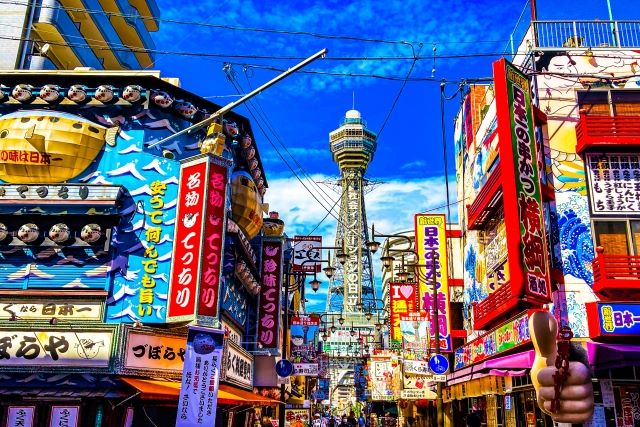Introduction to Instagram-Worthy Spots in Osaka Prefecture
Osaka has many historical attractions, including Osaka Castle, a representative Japanese castle; Sumiyoshi Taisha, which attracts 2 million visitors annually; and Nintoku Tennō-ryō Kofun, one of the world’s three largest tombs, along with the pyramids of Pharaoh Khufu in Egypt and the Mausoleum of the First Qin Emperor in China.
Osaka Castle
Osaka Castle, built by Toyotomi Hideyoshi, fell to Tokugawa Ieyasu’s forces. It was rebuilt during the Edo period, burned down during the Meiji Restoration, and later came under the jurisdiction of the army. The current castle, restored as a park after the war, serves as a history museum, exhibiting many cultural assets related to Toyotomi Hideyoshi, Tokugawa Ieyasu, and the castle’s history.
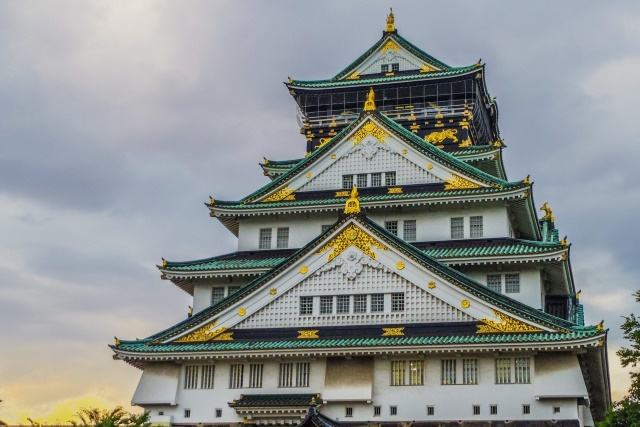
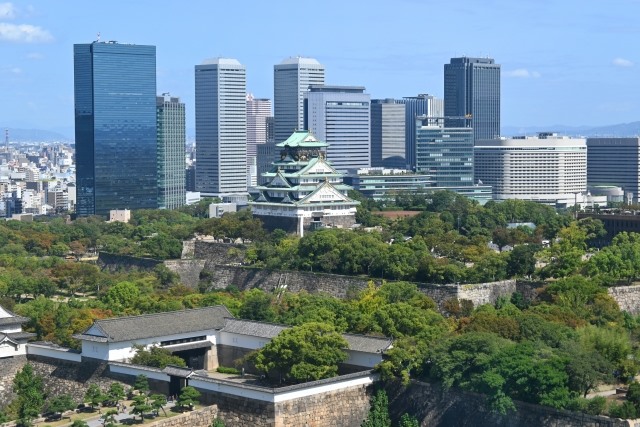
Instagram Worthiness:★★★★★
Photography Opportunity: All seasons
Location Information: ▶Map, Hours, Routes
Transportation Information: 19-minute walk from Osaka Castle Park Station
Kishiwada Castle
Kishiwada Castle, built by Toyotomi Hideyoshi in 1585, has undergone various historical changes. Initially governed by the Koide clan, the Okabe clan ruled the area for 13 generations. The castle was destroyed by lightning in 1827 but was rebuilt in 1954.
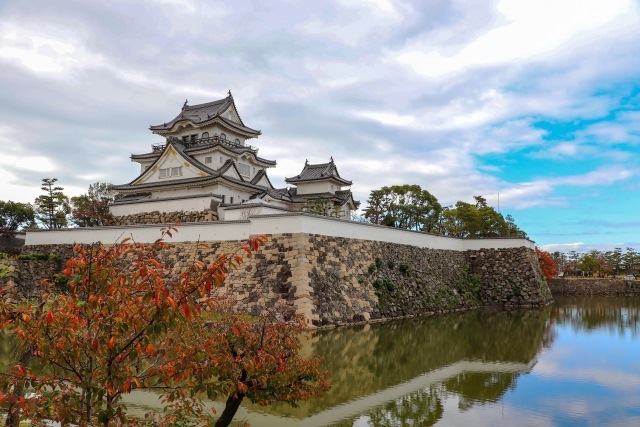
Instagram Worthiness:★★★★★
Photography Opportunity: All seasons
Location Information: ▶Map, Hours, Routes
Transportation Information: 7-minute walk from Takojizo Station
Sumiyoshi Taisha
Sumiyoshi Taisha is the central shrine of all Sumiyoshi shrines in Japan, attracting around 2 million visitors every New Year. The shrine features a distinctive bridge called Sorihashi, which is approximately 20 meters long, 3.6 meters high, and has a maximum incline of about 48 degrees. It is believed that crossing this bridge brings happiness to worshippers.
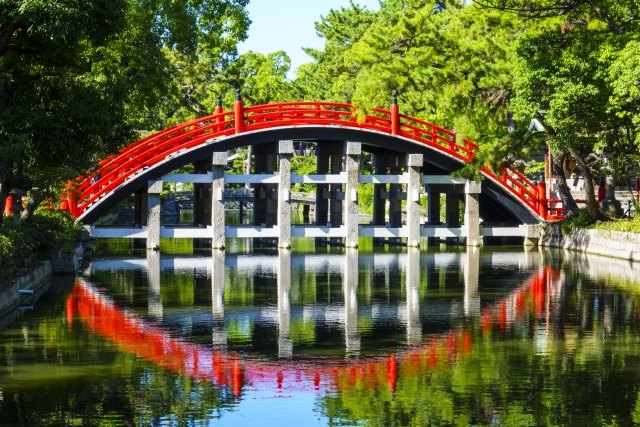
Instagram Worthiness:★★★★★
Photography Opportunity: All seasons
Location Information: ▶Map, Hours, Routes
Transportation Information: 3-minute walk from Sumiyoshi Taisha Station
Imamiya Ebisu Shrine
Imamiya Ebisu Shrine, established in 600 by Prince Shōtoku as the guardian shrine of Shitenno-ji Temple, is primarily dedicated to Ebisu, the god of commerce and one of Osaka’s Seven Gods of Good Fortune. A major festival takes place from January 9 to 11 each year, attracting many visitors.
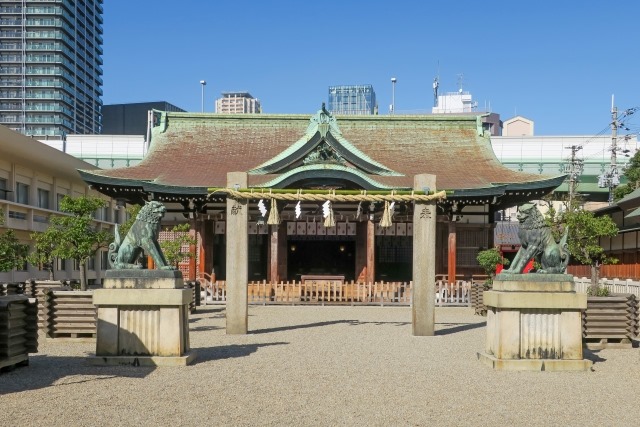
Instagram Worthiness:★★★★★
Photography Opportunity: All seasons
Location Information: ▶Map, Hours, Routes
Transportation Information: 1-minute walk from Imamiya Ebisu Station
Osaka Tenmangu Shrine
Osaka Tenmangu Shrine, founded in 949, enshrines Sugawara no Michizane, the deity of learning and the arts. It was established when Sugawara no Michizane stopped here to pray before his exile to Dazaifu in Kyushu. Every July 24 and 25, the shrine hosts the Tenjin Festival, one of Japan’s three major festivals, featuring over 3,000 participants in traditional attire, more than 100 boats on the river, and over 3,000 fireworks lighting up the sky.
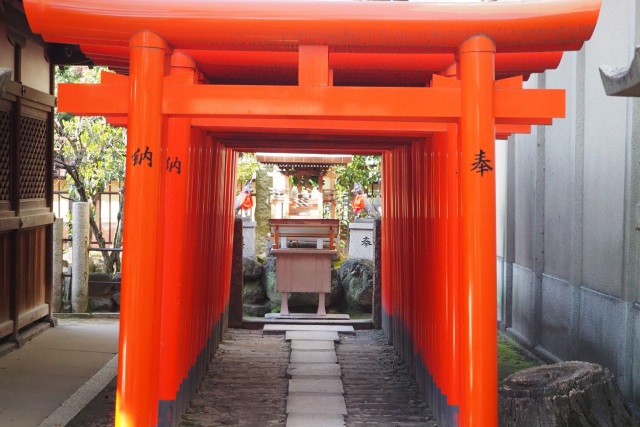
Instagram Worthiness:★★★★★
Photography Opportunity: All seasons
Location Information: ▶Map, Hours, Routes
Transportation Information: 3-minute walk from Minami-Morimachi Station
Shitenno-ji Temple
Shitenno-ji Temple, founded in 593 by Prince Shōtoku, enshrines the founders of various Buddhist sects, such as Saichō, Kūkai, Hōnen, and Shinran. The treasure hall displays many national treasures and important cultural properties. On the 21st and 22nd of each month, a temple fair is held, featuring memorial services and numerous stalls.
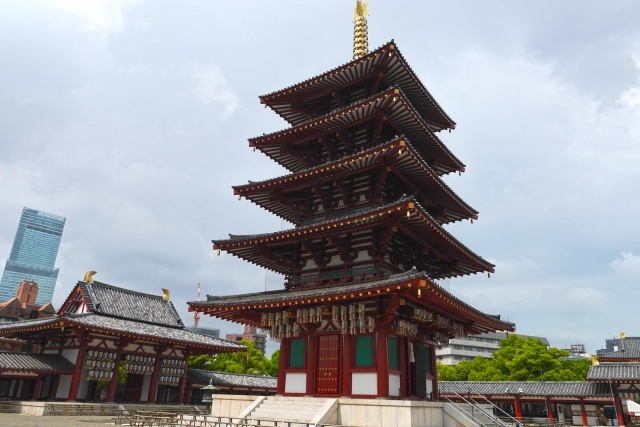
Instagram Worthiness:★★★★★
Photography Opportunity: All seasons
Location Information: ▶Map, Hours, Routes
Transportation Information: 5-minute bus ride from Tennoji Station
Nintoku Tennō-ryō Kofun
Nintoku Tennō-ryō Kofun, Japan’s largest keyhole-shaped tomb, is considered one of the world’s three largest tombs, along with the pyramids of Pharaoh Khufu in Egypt and the Mausoleum of the First Qin Emperor in China. The tomb, constructed over about 20 years in the mid-5th century, is approximately 486 meters long, with a round rear section diameter of about 249 meters and a height of about 35.8 meters. The tomb features haniwa (clay figures) representing humans, waterfowl, horses, deer, and houses.
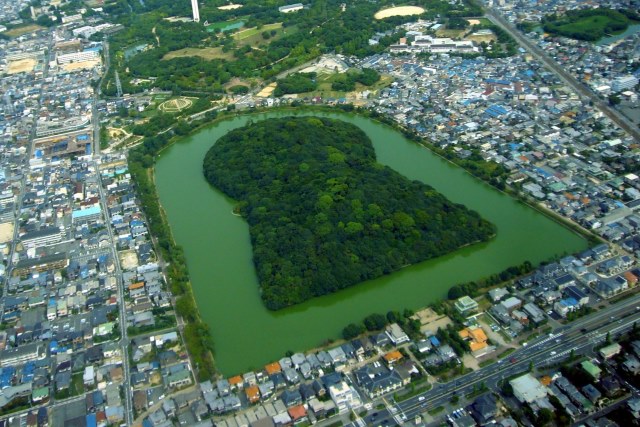
Instagram Worthiness:★★★★★
Photography Opportunity: All seasons
Location Information: ▶Map, Hours, Routes
Transportation Information: 7-minute walk from Mikunigaoka Station
Tsutenkaku Tower
Tsutenkaku, a symbolic building of Osaka, means “a tall building leading to the sky.” After being dismantled following a fire in 1956, it was rebuilt, and the current tower, with a height of 103 meters, offers a panoramic view of Osaka City. The surrounding area, known as Shinsekai, has a history spanning over 100 years, with “Jan-Jan Yokocho,” a street lined with about 50 eateries. The area is also famous for the statue of Biriken, which brings good luck when you rub its feet, and the retro Showa-era shopping district with fugu lanterns.
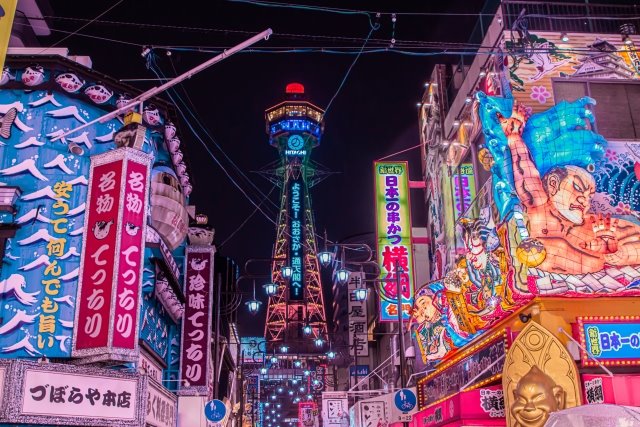
Instagram Worthiness:★★★★★
Photography Opportunity: All seasons
Location Information: ▶Map, Hours, Routes
Transportation Information: 8-minute walk from Shin-Imamiya Station
